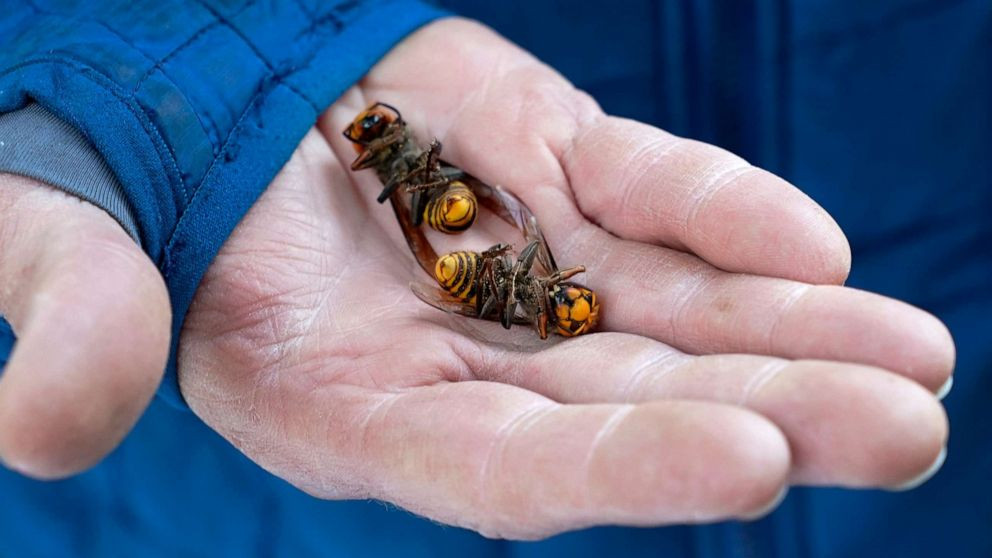A group of hikers in Brittany, France, faced a horrifying encounter with Asian hornets on Monday, leading to the death of a 77-year-old woman and four others hospitalized. The group was walking along a path near Pleudihen-sur-Rance, Côtes-d'Armor, when they stumbled upon a hornet's nest, triggering a brutal attack.
The victim, who was stung multiple times, went into cardiac arrest and was pronounced dead at the scene despite the swift arrival of emergency services. Four other members of the group, including a 68-year-old woman who remains in intensive care, were hospitalized for their stings. Local authorities have closed the trail to the public and are working to destroy the nest.
This attack comes after a similar incident on the same path last Friday, where a local resident was stung dozens of times before managing to escape. The attacks have sparked fear among residents and hikers alike, highlighting the dangers posed by these invasive insects.
Asian Hornet Threat in Britain
While the recent attacks took place in France, the threat posed by Asian Hornets is increasingly felt in the UK as well. These insects, known for their aggressive nature and ability to decimate bee populations, were first spotted in the UK in 2016, having arrived in France in 2004. The Channel Islands have been a key battleground in the fight against the spread of Asian Hornets, with a major victory declared this summer after a concerted effort to reduce the number of queens. However, fears persist that the species has established a new foothold on the mainland, with sightings reported along the Kent coastline.
Recognizing the Threat
The Asian Hornet is easily distinguishable from its European counterpart, being slightly smaller and darker with characteristic yellow ends on its brown legs. The British Beekeepers Association urges immediate reporting of any sightings to their Asian Hornet watch app, emphasizing the importance of images for accurate identification and swift eradication efforts.
The Importance of Bee Preservation
The Asian Hornet's predatory nature poses a significant threat to bee populations, both native and commercially important honeybees. Bees play a crucial role in pollination, essential for maintaining biodiversity and food production. The RSPB, concerned about the potential impact of Asian Hornets on its nature reserves in Sussex, has highlighted the detrimental effects these invasive insects can have on bee populations and ecosystems.
Protecting Yourself from Asian Hornets
While human casualties from Asian Hornet stings are thankfully rare, their venom can still pose a threat, especially to children and individuals with pre-existing health conditions. If you find yourself encountering an Asian Hornet, it's essential to avoid disturbing the nest and maintaining a safe distance. Seek immediate medical attention if you are stung, especially if you experience severe allergic reactions such as swelling, itching, or difficulty breathing.
A Worldwide Issue
The spread of Asian Hornets is not limited to the UK and France. The insect has established itself in various parts of Europe and poses a growing threat to biodiversity and human safety. As the climate changes and global travel continues, the risk of invasive species like the Asian Hornet spreading to new areas increases.
A Call for Vigilance
The recent tragedy in Brittany serves as a stark reminder of the dangers posed by Asian Hornets. It's crucial to remain vigilant, educate ourselves about these insects, and take appropriate precautions to protect ourselves and our environment. Reporting sightings promptly and supporting initiatives aimed at containing their spread are critical steps in mitigating the threat posed by Asian Hornets. This invasive species is a challenge that requires global attention and collaborative efforts to safeguard the health of our ecosystems and our own well-being.

















